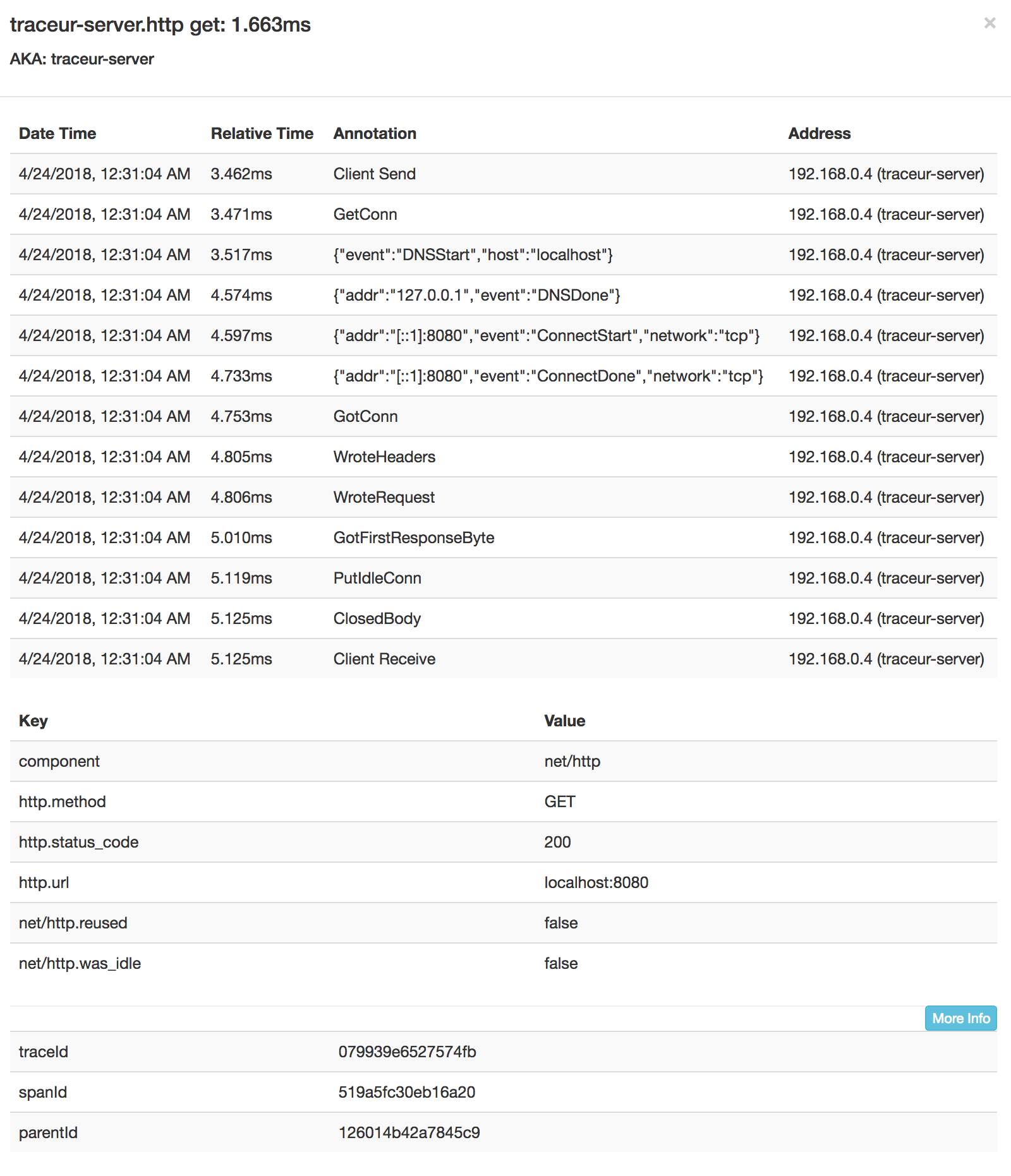These are implementation-specific notes.
Run zipkin:
docker run --rm -p 9411:9411 -e JAVA_OPTS=-Dlogging.level.zipkin=DEBUG openzipkin/zipkin:2.7.2
Then build and run go-traceur:
go install github.com/ripta/go-traceur
go-traceur
And then do a request:
curl -i localhost:8080/hello/world/echo?foo=bar
which will generate recursive requests to:
/hello/world/echo?foo=bar
/world/echo?foo=bar
/echo?foo=bar
The output of go-traceur should include request logs and dumps of the request
headers. The headers should look like:
2018/04/24 00:31:04 --> {"Accept-Encoding":["gzip"],"Uber-Trace-Id":["79939e6527574fb:519a5fc30eb16a20:126014b42a7845c9:1"],"User-Agent":["Go-http-client/1.1"]}
Specifically, you'll want the Uber-Trace-Id, which consists of four colon-separated segments:
- the trace ID, which is globally unique;
- the span ID, which is unique within the trace and equal to the trace ID at the root;
- the span ID of the parent span, which is zero at the root; and
- a bitmap flag: sampled(1) or debug(2).
The trace ID is the ID that can be looked up in Zipkin.

